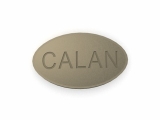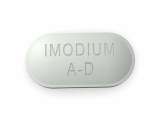How pharmacy has evolved through the ages
The field of pharmacy has a rich and diverse history that spans centuries and continents. Its roots can be traced back to ancient civilizations, where medicine was intertwined with spirituality and folk remedies. Over time, pharmacy has evolved in response to scientific discoveries and technological advancements, transforming from a mystical art into a sophisticated scientific discipline.
Ancient civilizations, such as those in Egypt, India, and China, held a deep understanding of the healing properties of plants and minerals. Hieroglyphics and ancient texts reveal the use of various herbs, spices, and other natural substances for medicinal purposes. These treatments were often based on trial and error, as well as the belief in the spiritual and mystical powers of certain substances.
In the Middle Ages, the practice of pharmacy expanded in Europe, with the establishment of apothecaries and guilds. As trade routes expanded, new plants, spices, and medicinal substances were introduced to Europe, leading to a further diversification of remedies. Pharmacists played a vital role in compounding and preparing these remedies, often utilizing complex techniques and equipment.
The 19th and 20th centuries marked a turning point for pharmacy, as advancements in chemistry and pharmacology led to the development of modern medicine. The discovery of antibiotics, vaccines, and other life-saving drugs revolutionized healthcare and propelled pharmacy into a new era of scientific rigor. Pharmacists now work closely with doctors and other healthcare professionals to ensure the safe and effective use of medications.
Today, pharmacy continues to evolve and adapt to the changing needs of society. With advancements in technology and the emergence of personalized medicine, pharmacists are at the forefront of patient care, providing valuable expertise in medication management and promoting overall health and well-being.
As we explore the evolution of pharmacy, we gain a deeper appreciation for the role it has played in human civilization and the importance of continuing to push the boundaries of scientific knowledge. From ancient remedies to modern medicine, pharmacy remains a cornerstone of healthcare, rooted in the quest to improve and preserve human health.
The Birth of Pharmacy: Ancient Remedies and Herbal Medicine
The Role of Pharmacy in Ancient Civilizations
Pharmacy, in its earliest form, can be traced back to ancient civilizations such as Egypt, Mesopotamia, and China. In these societies, the role of a pharmacist was intertwined with that of a physician, as they were responsible for preparing and dispensing herbal remedies to treat various ailments.
Medical knowledge was often passed down from generation to generation, with pharmacists relying on their understanding of different plants and their medicinal properties. This wealth of knowledge allowed them to create complex concoctions and mixtures to address a wide range of health issues.
The Use of Herbal Medicine
In the ancient world, herbal medicine was the primary method of healing. Plants and herbs played a significant role in medical practices due to their perceived medicinal benefits. Pharmacists would gather, prepare, and utilize various parts of plants, such as leaves, roots, and flowers, to create potions, poultices, and extracts.
Herbal medicine was used to treat a wide range of conditions, including digestive disorders, respiratory ailments, skin conditions, and even mental health issues. Different cultures had their own unique remedies and herbal formulas that utilized locally available plants.
The Importance of Records and Documentation
In ancient pharmacy, documentation and record-keeping were paramount. Pharmacist-physicians would meticulously record their observations, recipes, and treatment plans on clay tablets, papyrus scrolls, or other durable materials. These records served as a valuable resource for future generations and helped in the evolution and refinement of herbal medicine.
These early records paved the way for the standardization of medicinal plants and their use. They provided a foundation for the development of pharmacopoeias, which compiled and standardized herbal recipes and medicine practices.
Cross-Cultural Exchange and the Spread of Herbal Knowledge
As ancient civilizations came into contact with one another through trade and conquest, there was a significant exchange of herbal knowledge. Egyptian, Mesopotamian, Chinese, and Indian herbal practices began to influence and merge, resulting in a cross-cultural exchange of medicinal knowledge.
This exchange of knowledge laid the foundation for the development of more complex medical practices and the expansion of pharmacy as a distinct discipline. It set the stage for future advancements and paved the way for the modern pharmaceutical industry as we know it today.
The Middle Ages: Alchemy, Compounding, and the Emergence of Pharmacists
Alchemy and the Search for the Elixir of Life
During the Middle Ages, the practice of pharmacy was heavily influenced by the belief in alchemy. Alchemists sought to transform base metals into gold and discover the elusive elixir of life. This mystical pursuit had a significant impact on the development of pharmaceutical knowledge and techniques. The alchemists' experiments and discoveries often involved the use of various substances, including herbs, minerals, and animal parts, which laid the foundation for the compounding practices of pharmacists.
The Art of Compounding and Herbal Medicine
In the medieval period, pharmacists were responsible for compounding medicines by combining different ingredients according to specific formulas. The art of compounding involved carefully measuring, mixing, and processing various substances to create potions, ointments, and powders. Pharmacists relied heavily on herbal medicine, as plants and herbs were believed to possess healing properties. Herbal remedies were commonly used to treat various ailments, and pharmacists played a crucial role in identifying, procuring, and preparing these natural remedies.
The Rise of Pharmacists as Professionals
During the Middle Ages, pharmacists began to emerge as distinct professionals within the medical field. They were often associated with apothecaries and operated their own shops, where they compounded and dispensed medicines. The role of pharmacists expanded beyond compounding, as they also advised patients on the appropriate use of medications and provided information about the therapeutic properties of different substances. This marked the beginning of the professionalization of pharmacy and the establishment of pharmacists as trusted healthcare providers.
The Middle Ages marked a period of significant development in the field of pharmacy. The practice of alchemy influenced the discovery and use of various substances, while the art of compounding and herbal medicine became essential elements of pharmacy. Additionally, pharmacists emerged as professionals, playing a vital role in dispensing medications and advising patients. These advancements laid the groundwork for the evolution of pharmacy into the modern medical discipline it is today.
The Age of Enlightenment: Scientific Advances and Technological Breakthroughs
Advances in Science
The Age of Enlightenment, which spanned from the late 17th to the late 18th century, was marked by significant advances in various scientific disciplines. During this period, prominent thinkers and scientists such as Isaac Newton, Carl Linnaeus, and Antoine Lavoisier made groundbreaking discoveries that paved the way for modern medicine.
Isaac Newton's laws of motion and universal gravitation revolutionized the understanding of the physical world, providing a solid foundation for the development of physics and engineering. Carl Linnaeus developed a systematic way of classifying and naming plants and animals, establishing the field of taxonomy that is still used today in pharmacy to categorize drugs. Antoine Lavoisier's studies on combustion and chemical reactions laid the groundwork for modern chemistry, enabling the understanding of how substances interact in the human body.
Technological Breakthroughs
The Age of Enlightenment also witnessed significant technological breakthroughs that had a profound impact on the field of pharmacy. One notable advancement was the invention of the microscope by Antonie van Leeuwenhoek, which enabled the observation of microorganisms and paved the way for the study of infectious diseases and the development of antibiotics.
In addition to the microscope, advancements in machinery and manufacturing processes greatly improved the production and distribution of pharmaceutical products. The introduction of steam power and the industrial revolution led to the development of large-scale manufacturing facilities, allowing for the mass production of medications and improving accessibility to essential drugs.
The Age of Enlightenment marked a period of great progress in the fields of science and technology. These advancements laid the foundation for modern medicine and transformed the practice of pharmacy, paving the way for further discoveries and improvements in healthcare.
The Industrial Revolution: Production, Standardization, and the Rise of Modern Pharmaceuticals
The Industrial Revolution marked a significant turning point in the history of pharmacy, as it brought about major advancements in production methods, standardization, and the development of modern pharmaceuticals.
Production
The Industrial Revolution, which began in the 18th century, revolutionized the pharmaceutical industry by introducing new methods of production. Previously, medications were often prepared by individual pharmacists, resulting in variations in quality and effectiveness. However, with the industrialization of pharmacy, the production of drugs became more efficient and scalable. Pharmaceutical companies started utilizing mechanical processes and automation to manufacture medicines in larger quantities, improving access to essential treatments.
Standardization
One of the key advancements during the Industrial Revolution was the standardization of pharmaceuticals. Prior to this period, medications were often made from natural ingredients, and there was little regulation or consistency in their composition. However, with the rise of modern pharmaceuticals, companies began to introduce standardized formulas and dosage forms. This allowed for greater control over the efficacy and safety of drugs, ensuring that patients received consistent and reliable treatments. Standardization also facilitated the development of dosage guidelines and improved patient outcomes.
The Rise of Modern Pharmaceuticals
The Industrial Revolution played a crucial role in the development of modern pharmaceuticals. As production and standardization methods advanced, scientists and researchers were able to explore new compounds and create innovative medicines. Pharmaceutical companies invested in research and development, leading to breakthroughs in areas such as antibiotics, vaccines, and pain relievers. The availability of these new drugs revolutionized medical treatment and significantly improved patient outcomes.
In conclusion, the Industrial Revolution had a profound impact on the pharmacy industry, transforming it from individual artisanal practices to large-scale production and standardized formulations. This period also paved the way for the development of modern pharmaceuticals, ultimately leading to improved healthcare and the ability to treat a wide range of diseases and conditions.
The Modern Era: Pharmacology, Clinical Trials, and the Future of Medicine
Pharmacology: Advancements in Drug Development
In the modern era, pharmacology has become a crucial field for the development and study of drugs. Using advanced techniques and methodologies, researchers are able to identify and understand the molecular mechanisms of diseases, paving the way for the development of targeted and personalized therapies. With a deeper understanding of drug interactions and mechanisms, pharmacologists can optimize drug formulations and dosages for maximum efficacy and safety.
The application of pharmacology extends beyond the development of new drugs. It also involves studying the effects of existing medications on the body, identifying potential drug-drug interactions, and evaluating drug safety. The advancements in pharmacology have greatly contributed to the improvement of patient care and the overall effectiveness of modern medicine.
Clinical Trials: Ensuring Safety and Efficacy
Clinical trials play a critical role in the modern era of medicine. These studies are essential in evaluating the safety and efficacy of new drugs before they are approved for public use. Through carefully designed protocols and rigorous testing, clinical trials provide valuable data on drug interactions, side effects, and overall effectiveness.
During a clinical trial, patients are carefully monitored and their responses to the drug are tracked and analyzed. This helps researchers determine the optimal dosage, identify potential side effects, and assess the drug's overall safety profile. Without clinical trials, the introduction of new drugs into the market would be significantly riskier, potentially compromising patient health and wellbeing.
The Future of Medicine: Personalized and Precise Treatments
The future of medicine lies in personalized and precise treatments. Advancements in genetics, genomics, and other fields of research have allowed scientists to better understand the individual variations in disease susceptibility and response to treatment. This knowledge has opened doors for the development of targeted therapies that can be tailored to an individual's specific needs.
With the advent of technologies such as gene editing and precision medicine, healthcare providers can deliver treatments that are highly tailored to a patient's genetic makeup, lifestyle, and environmental factors. This approach minimizes the risk of adverse reactions and increases the likelihood of successful treatment outcomes.
Furthermore, the integration of artificial intelligence and big data analytics in healthcare allows for more precise diagnoses, better treatment recommendations, and enhanced patient monitoring. Through the use of sophisticated algorithms and machine learning, healthcare providers can make more informed decisions and provide personalized care to patients.
In conclusion, the modern era of medicine is characterized by significant advancements in pharmacology, clinical trials, and the future of medicine. These developments have led to the discovery and development of targeted therapies, improved drug safety, and the potential for personalized and precise treatments. As technology and research continue to advance, the future of medicine holds great promise for further advancements in patient care and treatment outcomes.
Follow us on Twitter @Pharmaceuticals #Pharmacy
Subscribe on YouTube @PharmaceuticalsYouTube





Be the first to comment on "How pharmacy has evolved through the ages"